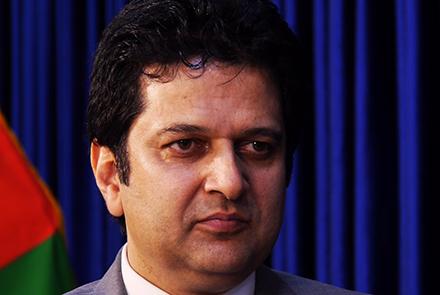Commenting on recent reports of talks on power-sharing between President Ashraf Ghani and CEO Abdullah Abdullah, the CEO’s spokesman Mujiburrahman Rahimi on Thursday said no individual and no force would be allowed to undermine or move the political share of the CEO to someone else.
The statement comes after reports emerged of ongoing negotiations between Ghani and Atta Mohammad Noor, the acting governor of Balkh province. However, the outcome of the talks remains uncertain.
Noor said in a recent interview that he was hoping to extend his political influence to a national platform but Rahimi said his demands have not been discussed between the leaders of the national unity government.
According to Rahimi, even if the president endorses Noor’s demands, it will not impact on the political authority of the CEO and instead the president will meet Noor’s demands.
“30 embassies, 30 deputy ministries, a number of independent directorates including the independent directorate of local governance, ten to fifteen provinces and half of the consulates in the world should be given to us,” said Noor.
Noor, as leader of Jamiat-e-Islami party, who backed Abdullah during the elections, appears now to be a political rival of Abdullah and a new ally of Ghani
“He (Noor) announced that he has entered negotiations and wants to get a share from Ashraf Ghani, the president of Afghanistan. This government has its leadership and they are supposed to take decisions on bigger national issues, these demands so far have not been discussed between government leadership,” said Rahimi.
But what happens next if the CEO’s share in power is given to Noor?
“The national unity government was formed on the basis of the political agreement, no individual and no force maintains the authority to give our share and authorities to others, and we will not allow someone to do so,” Rahimi said.
In recent months Abdullah has been under mounting pressure from his own colleagues, many of whom consider Abdullah has failed to secure Jamiat’s role in politics.
Since its establishment in 2014, the national unity government has been grappling internal disputes.
“It indicates gaps of trust between leaders of the national unity government, the second issue is that there is also mistrust within Jamiat-e-Islami party, thirdly trust in the government institutions has vanished completely,” said political analyst Hamid Saboori.
Political rifts between Ghani and Abdullah have apparently sparked internal disputes even between political parties.

